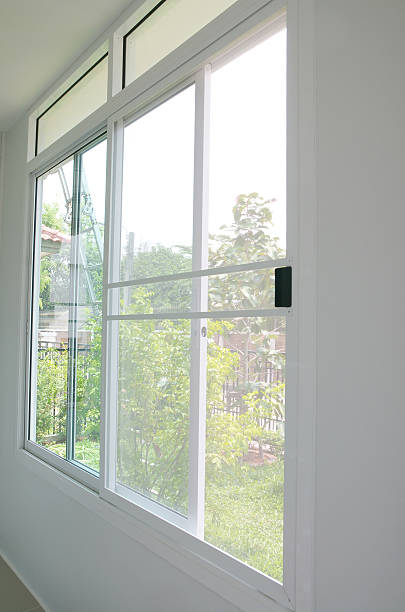Windows are one of the most important components of any building. Apart from their ability to give us much-needed privacy and security, they also help regulate temperature and airflow and add to the overall aesthetic appeal of living and working spaces.
However, despite their importance, windows can be vulnerable and prone to damage if not properly cared for. In this article, we will look at the common factors that can damage your windows and also provide practical tips to help you extend their lifespan.
What could cause your window to get damaged?
Several factors can cause your windows to break apart and lose their functionality. In this section, we have categorized these factors into two main groups: human-caused damage and uncontrollable damage.
Human-Caused Damages:
Your window could get damaged as a result of your negligence. Below are some common window issues that can arise from human error:
1. Accidental scratches or breaks: Your windows could get broken or suffer scratches if you don’t handle them properly, either when you are cleaning them, moving furniture around, or when renovation is being done inside or outside the house. These physical damages can compromise the window’s integrity, thereby shortening its life span.
2. Improper cleaning techniques: When you clean your windows using abrasive cleaners or harsh chemicals, you run the risk of damaging the window glass and the surrounding frames. Additionally, using rough cloths or scrubbing too hard can create scratches on the window glass, thereby reducing the window’s clarity and aesthetic appeal.
3. Failure to lock the window: If you fail to lock your windows, they could get damaged by intruders. Also, if you live in a very windy environment, failure to lock the window could cause the window to slam shut or swing open uncontrollably, leading to potential damage to the glass, frame, or even the wall.
Uncontrollable Damages:
Some types of damage are beyond our control; here are some of them.
1. Severe weather conditions: Events such as hailstorms, hurricanes, and tornadoes can wreak havoc on your windows. The impact of the flying debris during any of these events can shatter glass and damage window frames, thus reducing their lifespan.
2. Natural disasters: Earthquakes, floods, and other natural disasters can severely impact the structural integrity of windows. These events can cause shifting or settling of the window frames, leading to gaps, leaks, or breakage.
3. Damages caused by the sun: Another uncontrollable cause of window damage is prolonged exposure to ultraviolet (UV) rays from the sun. While UV rays won’t break the glass or cause the frame to tilt, they can lead to fading or discoloration of both the glass and the frame over time.
7 Tips to Increase the Lifespan of Your Windows
Your window is your first line of defense against intruders, harsh temperatures, and environmental elements. Therefore, effort should be put into making sure that it lasts for many years. By following the tips we will explain before, you will save yourself a lot of money on repairing and replacing windows.
1. Regular Cleaning: Clean your windows regularly using a mild detergent and a soft cloth. Try as much as possible to avoid cleaning your window with abrasive scrubbers or harsh chemicals, as they could potentially damage the glass and frames. However, because we advise against using harsh chemicals to clean windows, that doesn’t mean you should stop cleaning your windows altogether. Instead, use a gentle detergent and a soft cloth to wash them. Regular cleaning will help prevent the buildup of dirt, grime, and other contaminants that can degrade the window over time.
2. Inspect and repair when you notice slight damage: Periodically, inspect your windows for signs of damage or wear and tear. Look for cracks in the glass, issues with the frames, or any gaps in the seals. When you repair or replace any damaged parts of your window quickly, you will prevent further deterioration of the windows.
3. Weatherstripping: Check and replace weatherstripping around your windows to ensure a tight seal. Proper weatherstripping helps prevent air leaks, which can affect your home’s energy efficiency and lead to higher utility bills. It also helps protect against drafts and water infiltration.
4. Protect from Elements: Install storm windows or use shutters to protect your windows from flying debris during tornadoes, wind storms, hail storms and many other natural disasters. By installing window covers, the life span of your windows will be extended even further.
5. Proper Maintenance: Follow the manufacturer’s instructions for the maintenance and care of your specific type of window. Different window materials and designs may require different upkeep practices, so make sure that you adhere to recommended guidelines to make your window last longer and also perform as intended.
6. Secure Window Locks: Regularly check that window locks are functioning properly and securely. Properly locked windows help prevent damage from intruders and can also provide better protection against severe weather conditions.
7. Professional Inspection: Some times, it is better if you allow a professional to handle the maintenance of your window. Not only will this save you time and stress, but it will also ensure a thorough job, as professionals have the expertise and equipment to address issues that might be overlooked in your DIY approach.
Conclusion
By implementing these tips, you can extend the lifespan of your windows, reduce maintenance costs, and ensure they continue to function effectively. However, if you need expert assistance, contact our professional team today for comprehensive window maintenance services. Our services include installation, repair, and maintenance for all makes and models of windows.




